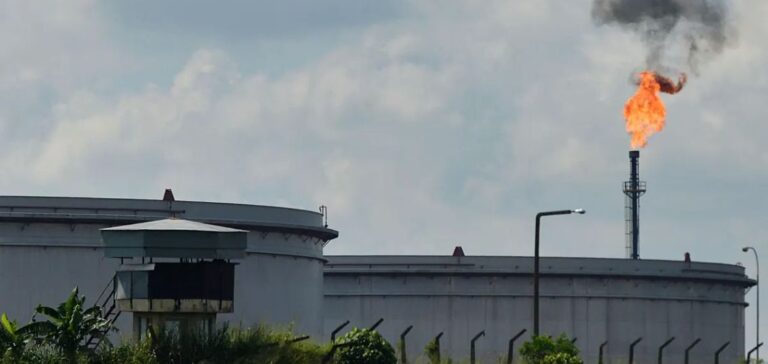Sri Lanka refinery: the cash-strapped country announced that it was abandoning a $3.85 billion deal to build an oil refinery. It was to become the biggest foreign investment on the island.
Failed oil refinery project in Sri Lanka: agreement broken with Silver Park International
The government has terminated the agreement, announced Energy Minister Kanchana Wijesekera. Based in Singapore, Silver Park International has not started construction of the refinery since it was due to open in 2019.
Initially, Oman and Silver Park, a family-owned Indian company, were to jointly finance the project. It was scheduled for completion this year. Mr. Wijesekera said the government would be looking for another foreign partner to set up a refinery mainly for the export of petroleum products.
Chinese companies Sinopec and Vitol had been shortlisted to build the island’s second oil refinery. Chinese investors would manage this facility located near the southern port of Hambantota.
Hambantota refinery: agreement terminated, Sri Lanka seeks new partner
A new partner will be announced in a few weeks’ time. “The cabinet cancelled the agreement with the Hambantota refinery company (of Silver Park) because they didn’t go ahead with construction,” said Wijesekera. Some 1,200 acres (485 hectares) of land allocated to the refinery have been reclaimed, he said.
In November 2019, Ranil Wickremesinghe, then Prime Minister of Sri Lanka, attended the inauguration of the Hambantota refinery. With the hope that it would become a strategic deep-water port between Asia and Europe, attracting more investment to the region.
In 2017, a Chinese company secured the lease of the port for $1.12 billion over 99 years. This was less than the $1.4 billion spent by a Chinese company to build the port.
Sri Lanka defaulted on its $46 billion foreign debt in April 2022 after running out of foreign currency to finance food, fuel and essential medicines. It has since obtained a $2.9 billion bailout from the International Monetary Fund.






















